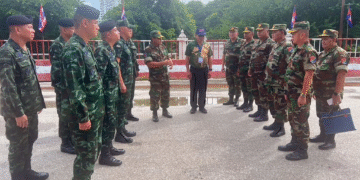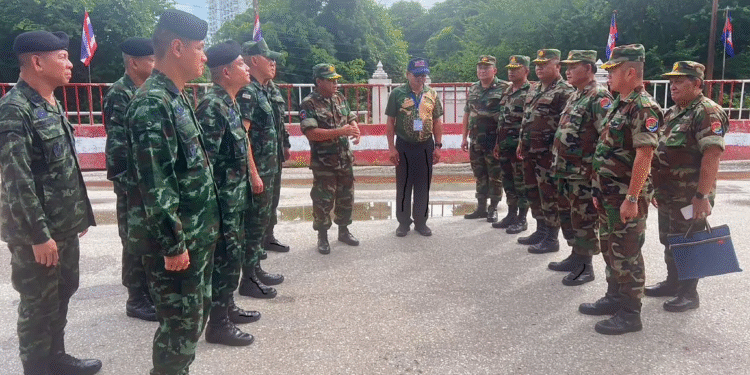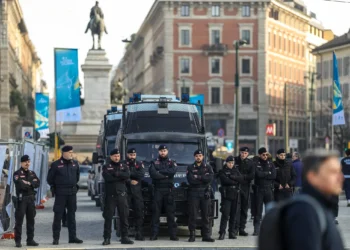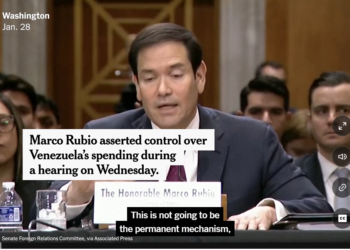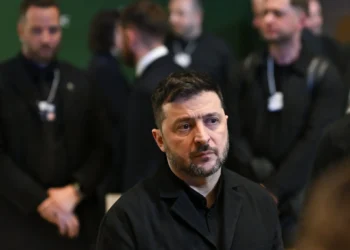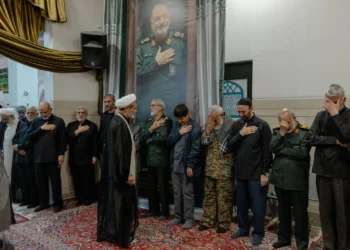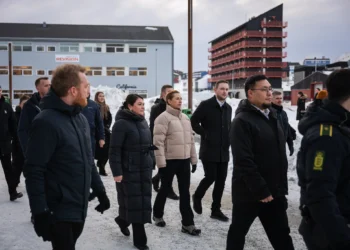A cease-fire in the bloody war between Thailand and Cambodia receives the support of the armed forces
The discussions between commanders on both sides were seen as a key litmus test for determining if the cease-fire agreement reached on Monday would lead to a lasting peace.
In meetings that were seen as a crucial test of whether a cease-fire agreement reached the previous day would bring a lasting end to one of the bloodiest border conflicts between their nations in decades, senior commanders from the Thai and Cambodian militaries agreed on Tuesday to de-escalate the conflict.
The military discussions took place the day after the civil leaders of Thailand and Cambodia met in Malaysia and came to a ceasefire agreement that was brokered by President Trump and Malaysian Prime Minister Anwar Ibrahim on Monday. Days of combat that resulted in hundreds of thousands of people being uprooted and at least 38 fatalities appeared to come to an end, at least for the time being, even though Thailand’s military on Tuesday blamed Cambodia of constant attacks.
Since both militaries are significant political actors, especially Thailand’s, and were not represented at the negotiations in Malaysia, the military discussions were being closely monitored.
Thailand and Cambodia both stated that their commanders had agreed to an immediate ceasefire, that they would not deploy more troops to the border region, that they would improve communication on both sides, and that they would establish a working group to ensure the ceasefire is fully enforced.
We came to the conclusion that we wouldn’t dispatch any more soldiers. The director general of the National Assembly of Cambodia, the lower chamber of the country’s parliament, is Lim Menghour. “That is the key development,” he stated.
In three distinct sessions, the regional commanders from both sides spoke. One of the meetings, between the commanders of Thailand’s Second Army Region and Cambodia’s Fourth Military Region—which were the sites of the heaviest fighting—was temporarily postponed, but government later confirmed that it did occur.

The meetings, which took place in the Cambodian border city of Os Mach, were conducted in a positive mood, according to Mr. Lim Menghour. “I believe that if Thailand fully implements the agreed terms in the meeting and resolves the conflict peacefully, the situation will be back to normal pretty soon,” he added.
The next round of discussions on the border issue is scheduled for Monday, when the defense ministers from both nations will meet. Malaysia will be watching those talks.
Thailand and Cambodia attacked each other with attacks along the disputed border, including airstrikes, for around five days following the start of the battle on Thursday.
In a Cambodian border area where explosions had been heard for days, there was a lull on Tuesday morning. According to Cambodian authorities, there had been no assaults since the ceasefire went into effect at midnight.
However, according to Maj. Gen. Winthai Suvaree, a representative for the Thai army, Cambodia broke the ceasefire agreement by firing in numerous regions close to the disputed border early on Tuesday. Lt. Gen. Maly Socheata, a spokesperson for the Cambodian Defense Ministry, refuted these claims.
Since midnight, Cambodia’s forces have been rigorously enforcing orders and the cease-fire agreement, she assured everyone.
Phumtham Wechayachai, Thailand’s acting prime minister, minimized the reports of ongoing combat, attributing it to “undisciplined soldiers” on the Cambodian side.
“We responded without going overboard,” he told reporters. “When they fired small arms, we fired small arms back. We didn’t increase the severity of the situation. It’s now thought to be quiet.
Additionally, Mr. Phumtham emphasized that Thailand’s choice to agree to the ceasefire was heavily influenced by the military. According to him, his civilian administration followed the army’s counsel on “how we want to negotiate.”
He stated, “Right now, we want the military to participate in discussions and decision-making.”
